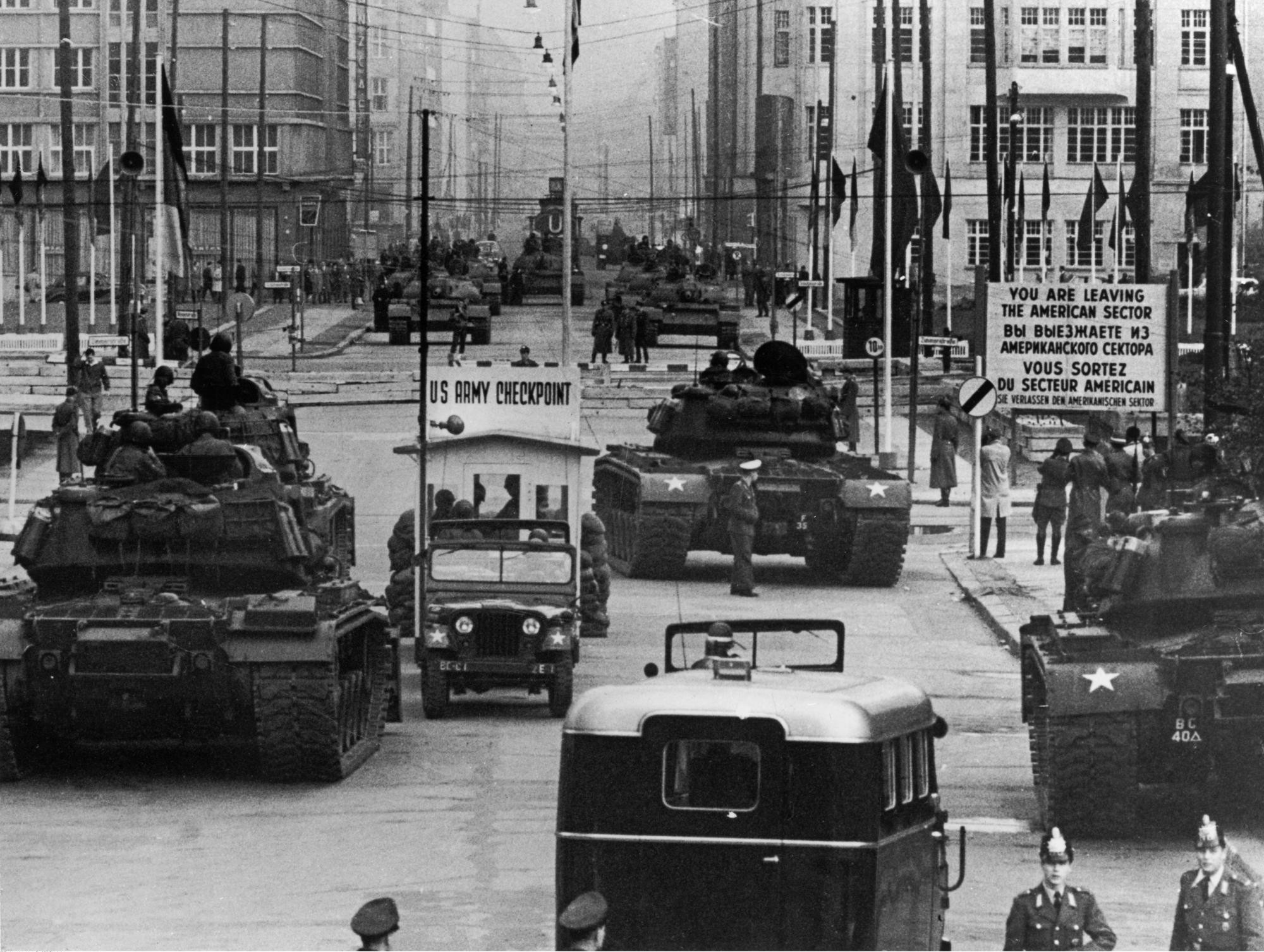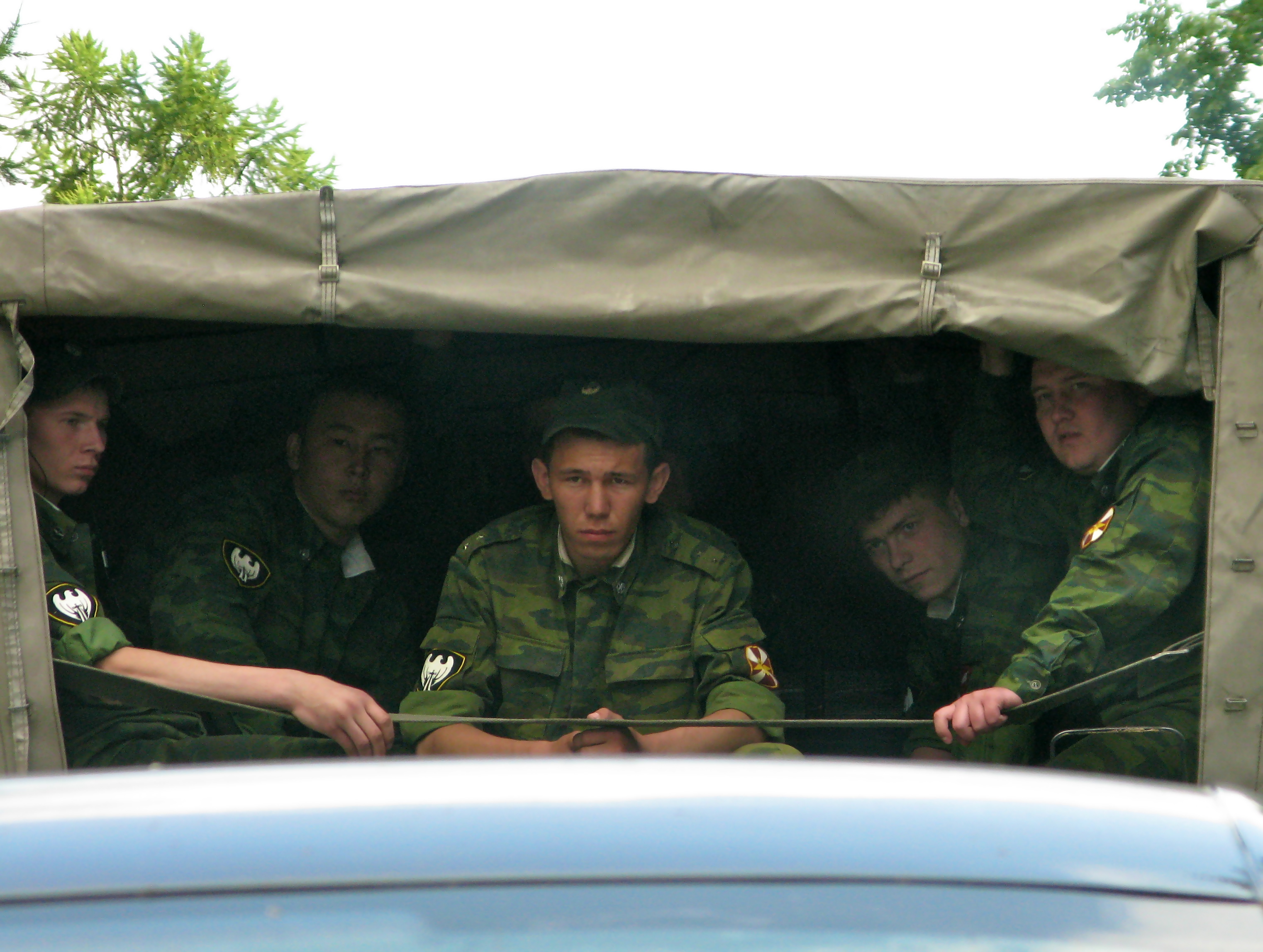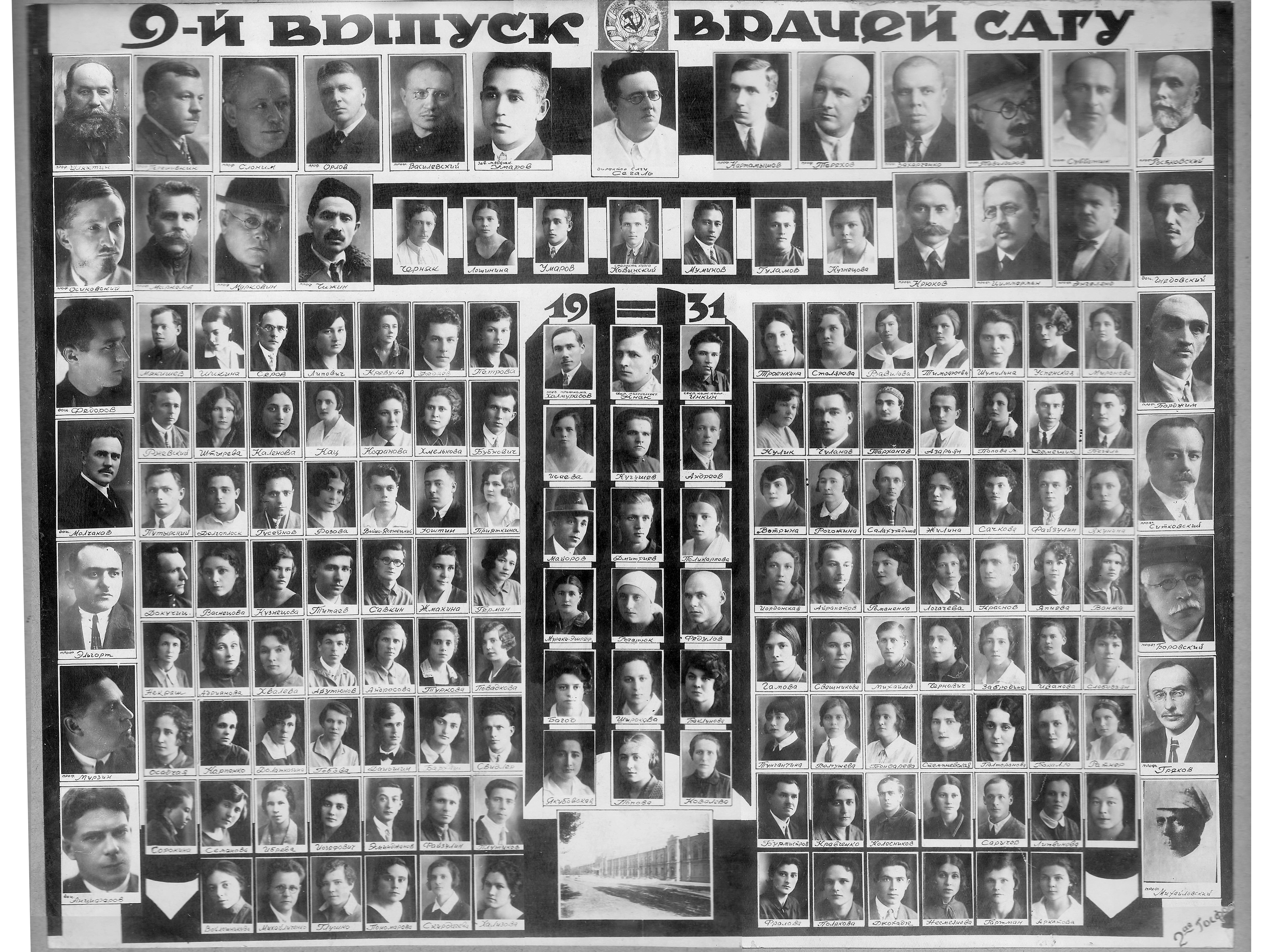|
Zokir Almatov
Zokir Almatov (born 10 October 1949 in Zangiata, Tashkent Region, Uzbek SSR, Soviet Union), sometimes romanized Zakir, was an Uzbek politician who was the interior minister of Uzbekistan until 2005. In 1967 he graduated from high school and immediately began to work at the Tashavtomash plant. He joined the Soviet Army in 1971, serving in the Internal Troops The Internal Troops, full name Internal Troops of the Ministry for Internal Affairs (MVD) (russian: Внутренние войска Министерства внутренних дел, Vnutrenniye Voiska Ministerstva Vnutrennikh Del; abbreviat .... In 1976 he graduated from Tashkent State University's Faculty of Law, which allowed him to work in district police departments around the country. From 1990 to 1991, he was Head of the Internal Affairs Directorate of the Tashkent Regional Executive Committee. On September 16, 1991, as a Colonel Almatov, was appointed as the first Minister of Internal Affairs of the Republic of ... [...More Info...] [...Related Items...] OR: [Wikipedia] [Google] [Baidu] |
Zangiata District
Zangiota is a district of Tashkent Region in Uzbekistan. The capital lies at the town Eshonguzar. It has an area of and it had 195,400 inhabitants in 2021. Between 2010 and 2017, the territory of Tashkent District was part of Zangiota District. LexUZ. The district consists of 12 s (, Oʻrtaovul
Oʻrtaovul ( uz, Oʻrtaovul/Ўртаовул, russian: Уртааул, Urtaaul) is an ...
[...More Info...] [...Related Items...] OR: [Wikipedia] [Google] [Baidu] |
Tashkent Region
Tashkent Region ( uz, Toshkent viloyati, Тошкент вилояти, russian: Ташкентская область) is a viloyat (region) of Uzbekistan, located in the northeastern part of the country, between the Syr Darya River and the Tien Shan Mountains. It borders with Kyrgyzstan, Tajikistan, Sirdaryo Region and Namangan Region, as well as the city of Tashkent which is a region in its own right, forming en enclave entirely encircled by the territory of Tashkent Region. It covers an area of 15,250 km². The population is estimated 2,975,900 (2021). Its capital is the city Nurafshon. Other cities are Angren, Olmaliq, Ohangaron, Bekabad, Chirchiq, Gʻazalkent, Keles, Parkent, Yangiabad, and Yangiyoʻl. Districts The Tashkent Region consists of 15 districts (listed below) and seven district-level cities: Nurafshon, Olmaliq, Angren, Bekabad, Ohangaron, Chirchiq and Yangiyoʻl. There are 16 cities (Nurafshon, Olmaliq, Angren, Bekabad, Ohangaron, Chirch ... [...More Info...] [...Related Items...] OR: [Wikipedia] [Google] [Baidu] |
Uzbek SSR
Uzbekistan (, ) is the common English language, English name for the Uzbek Soviet Socialist Republic (Uzbek SSR; uz, Ўзбекистон Совет Социалистик Республикаси, Oʻzbekiston Sovet Sotsialistik Respublikasi, in Russian language, Russian: Узбекская Советская Социалистическая Республика, Uzbekskaya Sovetskaya Sotsialisticheskaya Respublika. It was also referred to as Uzbekistan SSR, Uzbek language, Uzbek: Ўзбекистон ССР, O’zbekiston SSR; russian: Узбекская ССР, link=no, ''Uzbekskaya SSR'') and later, the Republic of Uzbekistan ( uz, Ўзбекистон Республикаси, Oʻzbekiston Respublikasi; Russian language, Russian: Республика Узбекистан, Respublika Uzbekistan), that refers to the period of Uzbekistan from 1924 to 1991 as one of the constituent republics of the Soviet Union. It was governed by the Communist Party of Uzbekistan, Uzbek branch ... [...More Info...] [...Related Items...] OR: [Wikipedia] [Google] [Baidu] |
Soviet Union
The Soviet Union,. officially the Union of Soviet Socialist Republics. (USSR),. was a List of former transcontinental countries#Since 1700, transcontinental country that spanned much of Eurasia from 1922 to 1991. A flagship communist state, it was nominally a Federation, federal union of Republics of the Soviet Union, fifteen national republics; in practice, both Government of the Soviet Union, its government and Economy of the Soviet Union, its economy were highly Soviet-type economic planning, centralized until its final years. It was a one-party state governed by the Communist Party of the Soviet Union, with the city of Moscow serving as its capital as well as that of its largest and most populous republic: the Russian Soviet Federative Socialist Republic, Russian SFSR. Other major cities included Saint Petersburg, Leningrad (Russian SFSR), Kyiv, Kiev (Ukrainian Soviet Socialist Republic, Ukrainian SSR), Minsk (Byelorussian Soviet Socialist Republic, Byelorussian SSR), Tas ... [...More Info...] [...Related Items...] OR: [Wikipedia] [Google] [Baidu] |
Ministry Of Internal Affairs (Uzbekistan)
The Ministry of Internal Affairs of the Republic of Uzbekistan ( uz, O'zbekiston Respublikasi Ichki Ishlar Vazirligi; IIV), is a body of the Government of Uzbekistan that is charged with the internal affairs of Uzbekistan and oversees the national police. The Ministry of Internal Affairs was founded on 25 August 1991. It replaced the Soviet Interior Ministry. The current Minister of Internal Affairs is Pulat Bobojonov. The ministry holds joint control over the Armed Forces of the Republic of Uzbekistan. It also administers the Academy of the Ministry of Internal Affairs, which is the official educational institution of the ministry. History The ministry's predecessor was the People's Commissariat of Internal Affairs of the Turkestan ASSR, which was founded on June 26, 1919, on a charter for criminal investigation which was adopted in 1948. It evolved as the USSR and the region changed over time, eventually becoming a ministry which covered the citizens of the Uzbek Soviet Social ... [...More Info...] [...Related Items...] OR: [Wikipedia] [Google] [Baidu] |
Uzbekistan
Uzbekistan (, ; uz, Ozbekiston, italic=yes / , ; russian: Узбекистан), officially the Republic of Uzbekistan ( uz, Ozbekiston Respublikasi, italic=yes / ; russian: Республика Узбекистан), is a doubly landlocked country located in Central Asia. It is surrounded by five landlocked countries: Kazakhstan to the north; Kyrgyzstan to the northeast; Tajikistan to the southeast; Afghanistan to the south; and Turkmenistan to the southwest. Its capital and largest city is Tashkent. Uzbekistan is part of the Turkic world, as well as a member of the Organization of Turkic States. The Uzbek language is the majority-spoken language in Uzbekistan, while Russian is widely spoken and understood throughout the country. Tajik is also spoken as a minority language, predominantly in Samarkand and Bukhara. Islam is the predominant religion in Uzbekistan, most Uzbeks being Sunni Muslims. The first recorded settlers in what is now Uzbekistan were Eastern Irania ... [...More Info...] [...Related Items...] OR: [Wikipedia] [Google] [Baidu] |
Soviet Army
uk, Радянська армія , image = File:Communist star with golden border and red rims.svg , alt = , caption = Emblem of the Soviet Army , start_date = 25 February 1946 , country = (1946–1991)' (1991–1992) , branch = , type = Army , role = Land warfare , size = 3,668,075 active (1991) 4,129,506 reserve (1991) , command_structure = , garrison = , garrison_label = , nickname = "Red Army" , patron = , motto = ''За нашу Советскую Родину!(Za nashu Sovetskuyu Rodinu!)''"For our Soviet Motherland!" , colors = Red and yellow , colors_label = , march ... [...More Info...] [...Related Items...] OR: [Wikipedia] [Google] [Baidu] |
Internal Troops
The Internal Troops, full name Internal Troops of the Ministry for Internal Affairs (MVD) (russian: Внутренние войска Министерства внутренних дел, Vnutrenniye Voiska Ministerstva Vnutrennikh Del; abbreviated ''ВВ'', ''VV''), alternatively translated as "Interior (Troops or Forces)", is a paramilitary gendarmerie-like force mostly in successor states of the Soviet Union and in other countries as well, including in Russia (until 2016), Ukraine (until 2014), Georgia (until 2004), Kazakhstan (until 2014), Kyrgyzstan, Azerbaijan, Belarus, Turkmenistan, and Tajikistan. It is also maintained as reserve forces in the Armed Forces of Mongolia. Internal Troops are subordinated to the interior ministries of the respective countries. They were designed to be used to support and reinforce the ''Militsiya'' (police forces), deal with large-scale crowd control, internal armed conflicts, prison security (except in Russia) and safeguarding of highly ... [...More Info...] [...Related Items...] OR: [Wikipedia] [Google] [Baidu] |
Tashkent State University
National University of Uzbekistan (NUUz) () is a public university located in Tashkent, Uzbekistan. NUUz is the oldest and largest university in Uzbekistan. National University of Uzbekistan is named after Mirzo Ulugbek. NUUz professors and teaching staff work with modern materials and science and have relationships with the world's distinguished scientific schools. History Higher educational institutions originated in eastern Iran in the 10th century CE and spread to major urban centers throughout the Middle East by the late 11th century. Simultaneously, universities were established in the West. In the beginning of the 20th century, jadids tried to establish universities with the collaboration of Russian democrats. Muslim People University was headed by a council consisting of 45 people. It aimed to offer higher, secondary and primary education. In autumn, Muslim People University and its founders were the first victims of repression from communists. The government of the Sov ... [...More Info...] [...Related Items...] OR: [Wikipedia] [Google] [Baidu] |
Vyacheslav Kamalov
Vyacheslav, also transliterated Viacheslav or Viatcheslav (russian: Вячеслав, Vjačeslav ; uk, В'ячеслав, V"jačeslav ), is a Russian and Ukrainian masculine given name. It is the equivalent of Belarusian Вячаслаў/Вацлаў (transliterated ''Viačasłaŭ/Vacłaŭ'', or ''Viachaslau/Vaclau''), Croatian ''Vjenceslav'', Czech ''Václav'' and Polish ''Wacław'' and Wieńczysław, which is Latinised as ''Wenceslaus''. It is a Slavic dithematic name (that is, composed of two lexemes) derived from the Slavic words ''vyache'', "great(er)", and ''slava'', "glory, fame". A common short form is ''Slava''. Notable people Notable people with the given name Vyacheslav include: Academia * Vyacheslav Ivanov (1929-2017), Russian philologist and scholar specialising in Indo-European studies * Vyacheslav Ivanovich Lebedev (1930–2010), Soviet and Russian mathematician, known for his work on numerical analysis and development of the Lebedev quadrature * Vyacheslav L ... [...More Info...] [...Related Items...] OR: [Wikipedia] [Google] [Baidu] |
People From Tashkent Region
A person ( : people) is a being that has certain capacities or attributes such as reason, morality, consciousness or self-consciousness, and being a part of a culturally established form of social relations such as kinship, ownership of property, or legal responsibility. The defining features of personhood and, consequently, what makes a person count as a person, differ widely among cultures and contexts. In addition to the question of personhood, of what makes a being count as a person to begin with, there are further questions about personal identity and self: both about what makes any particular person that particular person instead of another, and about what makes a person at one time the same person as they were or will be at another time despite any intervening changes. The plural form "people" is often used to refer to an entire nation or ethnic group (as in "a people"), and this was the original meaning of the word; it subsequently acquired its use as a plural form of p ... [...More Info...] [...Related Items...] OR: [Wikipedia] [Google] [Baidu] |
Government Ministers Of Uzbekistan
A government is the system or group of people governing an organized community, generally a state. In the case of its broad associative definition, government normally consists of legislature, executive, and judiciary. Government is a means by which organizational policies are enforced, as well as a mechanism for determining policy. In many countries, the government has a kind of constitution, a statement of its governing principles and philosophy. While all types of organizations have governance, the term ''government'' is often used more specifically to refer to the approximately 200 independent national governments and subsidiary organizations. The major types of political systems in the modern era are democracies, monarchies, and authoritarian and totalitarian regimes. Historically prevalent forms of government include monarchy, aristocracy, timocracy, oligarchy, democracy, theocracy, and tyranny. These forms are not always mutually exclusive, and ... [...More Info...] [...Related Items...] OR: [Wikipedia] [Google] [Baidu] |



_1938.jpg)